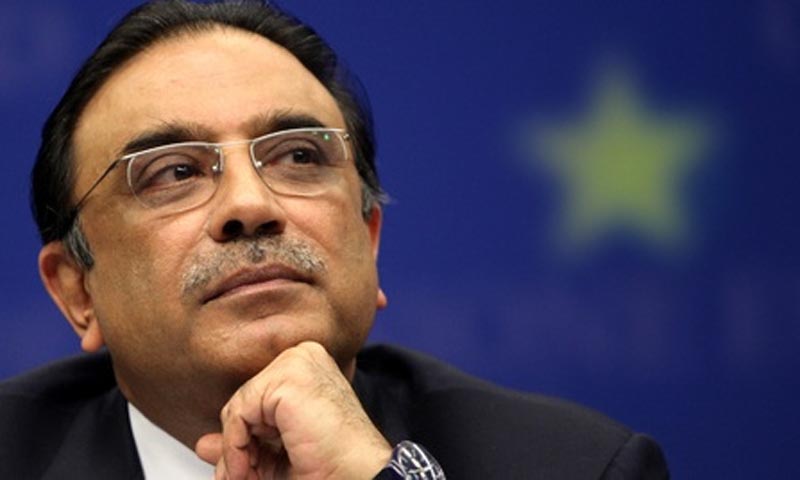ISLAMABAD: President Asif Ali Zardari is expected to leave Pakistan to stay abroad for an indefinite period after his retirement on September 8.
Sources close to the president told Dawn.com that his friends advised him to stay away given serious threats to his life. President Zardari has already told his associates he will not contest the next presidential elections. “And why should he? We are not even having a candidate to run for the office of president,” presidential spokesperson Senator Farhatullah Babar said.
The balance of power drastically shifted in favor of Pakistan Muslim League-Nawaz (PML-N) after the May 11 general elections. Under Article 41(3), the Electoral College for the president comprises the Senate, National Assembly and the four provincial assemblies. The PML-N enjoys an absolute majority in the electoral college.
Pakistan Peoples Party (PPP) MPA Sharmila Faruqi expressed ignorance about the future plans of the president. The presidential spokesperson did not respond to queries about the speculation either.
However, according to sources, the assassination of the president’s chief security officer Bilal Sheikh was a wake up call for President Zardari and his family – once the security layers around them are not intact post-retirement, they could be in an extremely vulnerable position.
Sheikh himself is not the first high profile security officer of the Bhutto himself to be killed. Previously, Khalid Shahenshah, the Bilawal House chief security officer, was killed outside his residence in 2008. In 2011, Imran Jangi, another prominent security officer of the Bhutto family was gunned down in Karachi.
For many, it seems like a natural conclusion. “Look at the president’s public appearances in the last five years. Very rare. He prefers to live in his bunker. Now after losing all presidential privileges he will not stay in Pakistan,” commented a former People’s Party (PPP) leader who requested not to be named.
After assuming office President Zardari faced serious threats to his life – so much so he refused to undergo medical treatment in any hospital in Pakistan. In December 2011, he had a minor heart attack but preferred to be treated in a hospital in Dubai. The then Prime Minister Yusuf Raza Gilani had confirmed that the decision was taken on security grounds.
Recently, a palatial bombproof Bilawal House was built in Lahore to enable his secure stay in the provincial capital. In Karachi, layers of security remain in place around Bilawal House whenever he visits the coastal city.
Corruption cases
However, analysts believe the security concerns are not the only reason for President Zardari’s expected post-retirement departure.
Another core reason, the sources said, was the hanging sword of different corruption cases. The Supreme Court already heard a case of reopening Swiss cases pending against him.
The legal aides of President Zardari are aware that presidential immunity will not be available for their client post-September 8. “The immunity under the constitution is not for the person but for the constitutional office that the president is holding so he has immunity until he is in the office of the president,” Barrister Aitzaz Ahsan explained.
A Pakistan People’s Party (PPP) insider said that President Zardari will be ‘remote controlling’ the party from abroad. Meanwhile, he intends to let his son Bilawal Bhutto Zardari take full control of the party.
Opposition Leader in the National Assembly, Syed Khurshid Shah, said the government would be committing a mistake if it reopened ‘baseless and fabricated corruption cases’ against President Zardari.
Senior Supreme Court Advocate, Senator SM Zafar, explained that President Zardari would lose the immunity the day a new president takes oath. “He is retiring on September 8. But he will not lose immunity on September 8. He will only become an ordinary citizen once a new president is in office,” he told Dawn.com.
He predicted President Zardari would leave the country before the day of losing his presidential immunity. Once he loses the immunity the government would be at liberty to reopen corruption and other cases against him, he said.
Zafar pointed out the actions which President Zardari undertook in his official capacity might continue to have immunity. “There is a solid argument that all his actions or decisions as President cannot be questioned in any court of law. This is debatable, which the courts may interpret if need arises. But anything pending against him prior to becoming the president is open for litigation,” he explained.


































